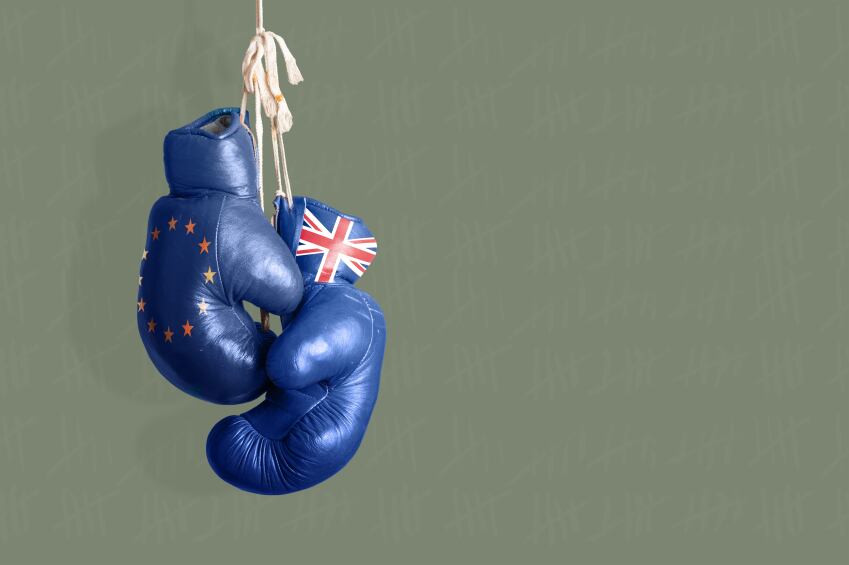
These questions form the focus of presentation speaker Viviana Spaghetti as she takes centre stage at NutraIngredients’ inaugural Sports Nutrition Congress on September 25-26th.
Her presentation “Brexit is coming. Opportunities, threats, likely scenarios and options for engagement,” is a chance for the industry to reflect on the ever-changing dialogue, as Spaghetti, a senior political consultant at The Whitehouse Consultancy, believes initially “very little will change”.
“All sports nutrition products are governed by very stringent regulation that controls every aspect of their existence - from their production to their labelling and marketing,” she said.
“The vast majority of this legislation emanates from Brussels and therefore it is reasonable for businesses to wonder about the impact of the Brexit process on their ability to produce, sell and advertise their products.”
“In practice, very little will change during the transition period but we all know how important it is for any business to be in a position to plan their decisions ahead. Legal certainty is an important variable in this context, particularly when it may involve product reformulation and relabelling – which involve significant costs for food businesses.”
Want to attend our Sports Nutrition Congress in September this year?
Organised by NutraIngredients and hosted in partnership with the European Specialist Sports Nutrition Alliance (ESSNA), the SNC will offer a one stop shop for the latest must-have insights in the worlds of sports and active nutrition - including the use of ketones in sports.
Register now to make you are there!
Top levels speakers already confirmed to join us in Brussels include:
- Florina-Andreea Pantazi, European Commission
- Daniel Davy, Leinster Rugby
- Orla O’Sullivan, APC Microbiome Institute
- Robert Walker, SCI-MX Nutrition
- Professor Kieran Clarke, University of Oxford
- João Gonçalo Cunha, KickUP Sports Innovation
- Pia Ostermann, Euromonitor International
- Katia Merten-Lentz, Keller and Heckman LLP
- Adam Carey, ESSNA Chair
- Alex Zurita, London Sport
- Professor John Brewer, St Mary’s University
- Tom Morgan, Lumina Intelligence
- Luca Bucchini, Hylobates Consulting & ESSNA Vice-Chair
Click this link find out more about what’s on the agenda for the congress.
Amending labelling & advertising rules
It is a line of thinking shared with Mark Gilbert, vice chair of the European Specialist Sports Nutrition Alliance (ESSNA), who said of Brexit last year that initially, all EU law is going to be transposed into UK law and not just for sport.
“The fastest time that anything could change even if they set an unreasonable transition period would be about three years,” he added.
“What will change after that is the UK changing its own laws that are more amenable to Britain, perhaps resulting in better competition, innovation and healthy products.”
Spaghetti added that the UK would intend to roll over EU rules on goods but would retain the possibility to amend some of these rules in the future.
“An example of this being labelling and advertising rules – if that was deemed to be an advantage for businesses (and the consumer). This will be subject to impact assessment, and open to feedback from interested stakeholders, so any changes will not happen overnight!”
Brexit remains uncharted territory not only for the UK but also for the European Union. At the time of writing, both UK officials and their EU counterparts are planning for various different scenarios for exit, including a no-deal. Only last week Kristian Jensen, Denmark’s finance minister, said this is now “50-50.”
“Disruptions at ports and airports are some of the possible consequences of a no deal, which may impact trade in goods,” commented Spaghetti on these latest developments.
“There will also be an impact on prices, as consumers may need to pay more for products due to the dependence of supply chains from EU partners.
“The effect of a no-deal scenario is likely to be uneven across Europe and highly dependent on the strength of links between each individual EU countries and the UK,” she said.
Nutrition safety standards
Naturally, much concern has veered towards food and nutrition safety standards and what Brexit will mean in maintaining a level that consumers, users and foodmakers are accustomed to.
As an example, recent events saw an argument brewing that centred on standards employed in the practice of washing chickens in a chlorine dioxide solution, said to reduce Salmonella prevalence.
It is a practice adopted in the US but banned throughout Europe due to concerns over the possible formation of by-products as a result of chlorine break down.
“The point about their use of chlorine is that it is used to mask low animal welfare and poor farming standards, which the British public will just not accept,”said Kath Dalmeny, Sustain’s chief executive, at the time.
“Leaving the EU is an opportunity for us to build an even better food Britain; we should not have to lower our standards to strike trade deals.”
This all happened back in January of this year, an eternity in the world of Brexit negotiations, where even a week is a long time.
Spaghetti believes that the UK intends to maintain high food safety standards, which in the EU are amongst the highest in the world.
“We do not see the Government compromising on this, particularly when it could cost consumers’ health,” she predicted.
“It is too early to say whether these would diverge over time, and very much will depend on the trade agreements the UK will manage to negotiate with third countries.”
The fast-changing nature of Brexit has given rise to the obvious question of how sports nutrition businesses can influence the process and the rules in a new market and policy environment.
“For UK based businesses, engagement with the local Member of Parliament is also a possibility, as they will be able to listen to concerns and share information on the Government action,” said Spaghetti.
“Organisations such as ESSNA can keep businesses updated on all policy, regulatory and political developments that may impact their businesses and assess opportunities to feed into these processes.”


